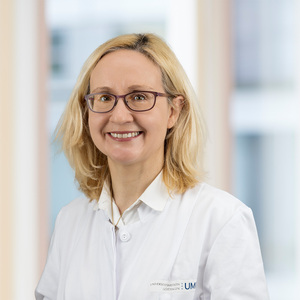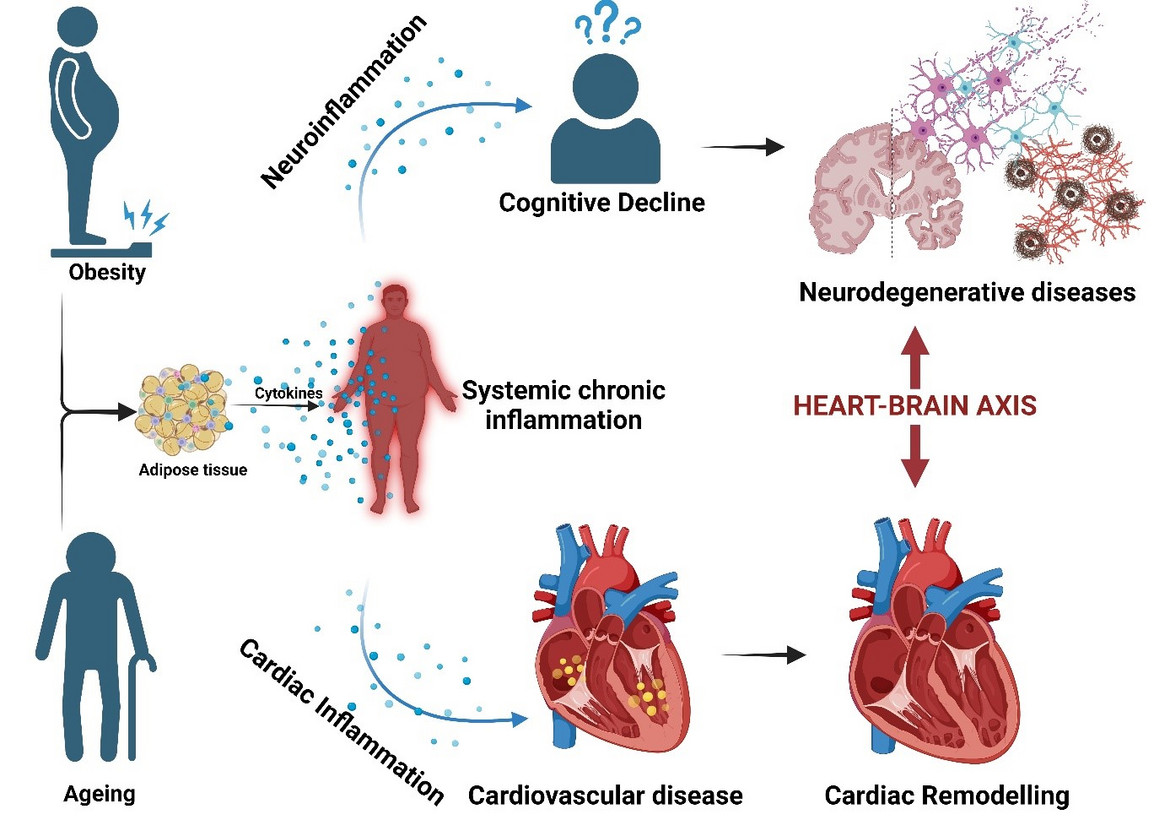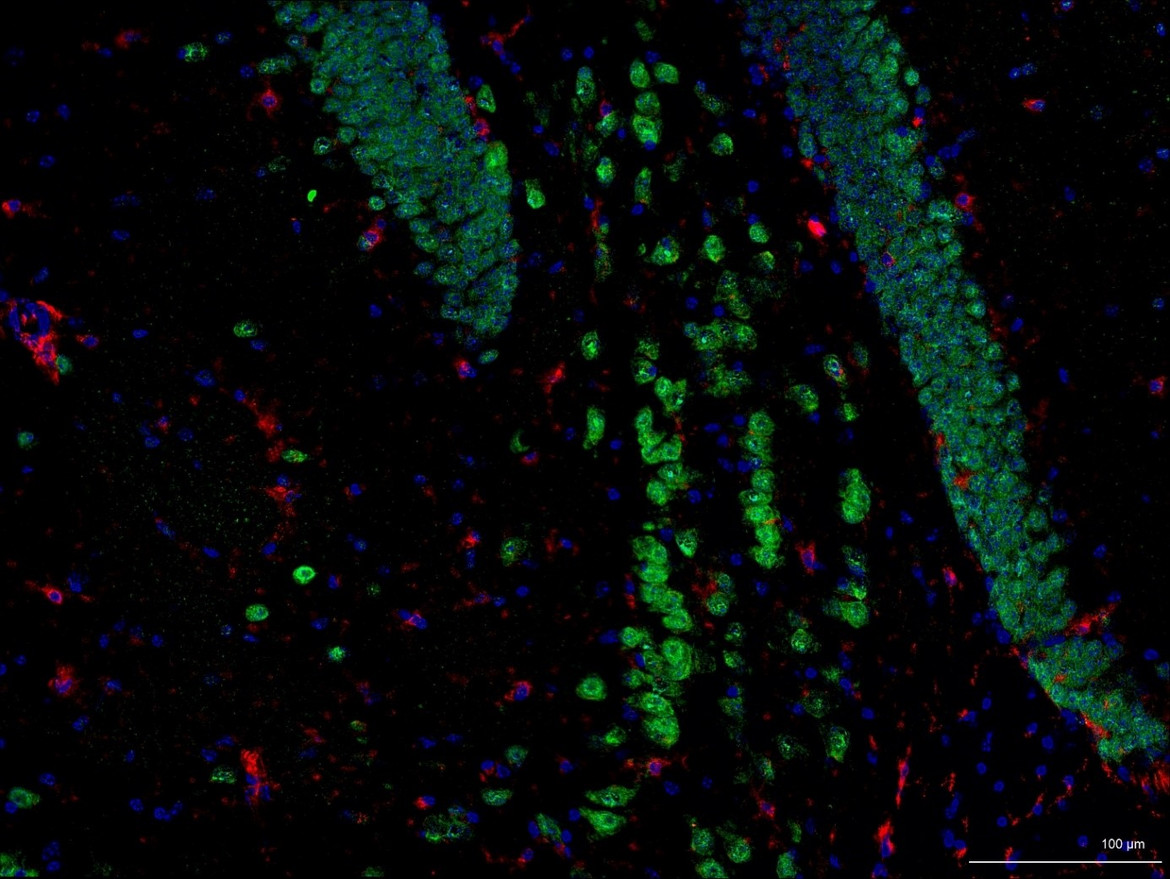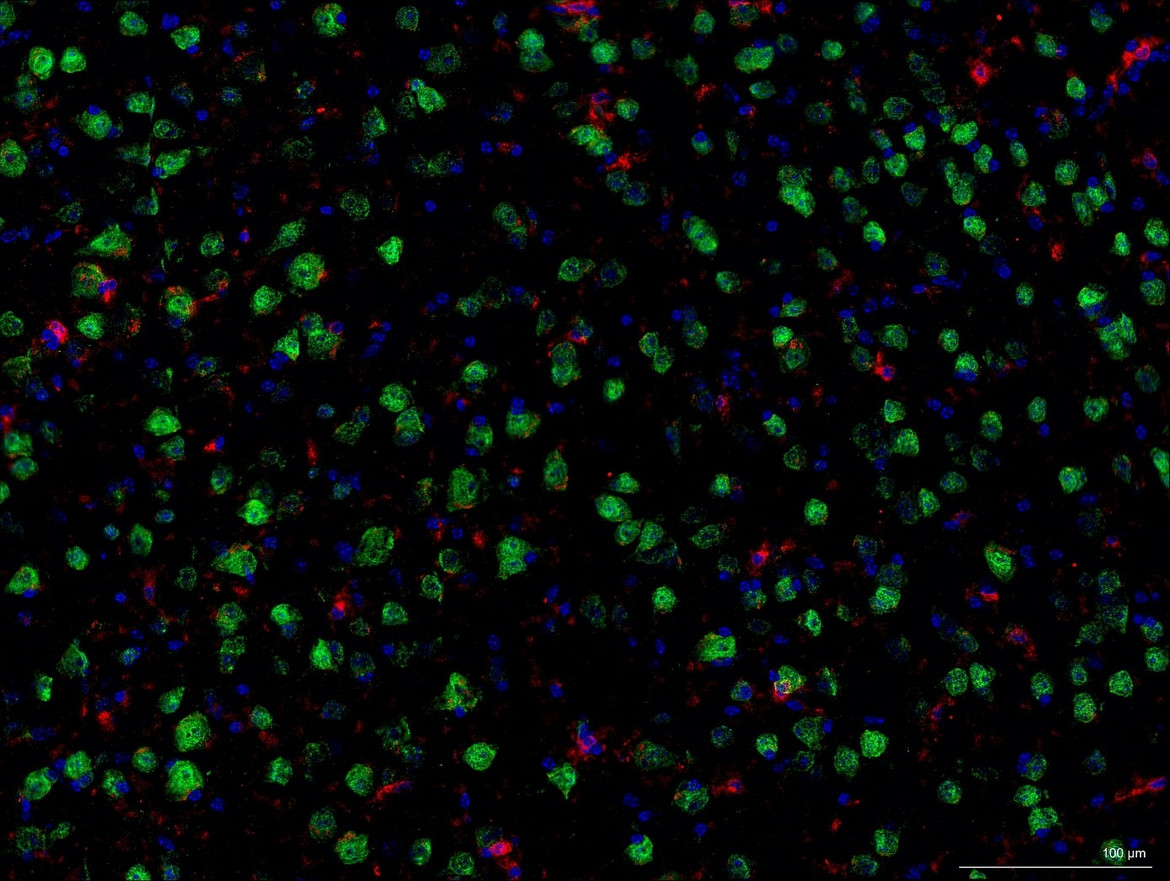Basic Science lab
The global increase in obesity is contributing to an "obesity epidemic". It is assumed that it accelerates the ageing process. Obesity-induced metabolic disorders and associated inflammation are linked to various health problems, such as dyslipidemia, non-alcoholic fatty liver disease (NAFLD), heart disease and neurodegenerative diseases. Alzheimer's disease (AD), one of the most common age-related diseases leading to dementia, is associated with a gradual decline in cognitive abilities and a progressive loss of self-care skills.
The newly established research group aims to elucidate the relationship between non-neurological diseases (e.g. heart) and the development of Alzheimer's disease in the ageing process in various mouse models and cells. These models will help us to explore the link between cognitive disorders and non-neurological pathologies by focusing on obesity as a risk factor, as well as the molecular mechanisms underlying the development of these diseases. We expect that the results will be transferable to humans and will positively influence the prophylaxis and therapy of Alzheimer's and cardiovascular diseases.
Projects funded by RTG 2824
Furthermore, in a project recently funded by the DFG (RTG 2824), we are investigating postoperative delirium (POD), a common complication of cardiac surgery that is associated with higher morbidity, longer hospital stays, increased risk of cognitive decline, dementia and mortality. Geriatric patients are particularly at risk.
Therefore, we are developing a mouse model to investigate the risk factors for POD, cognitive decline and dementia after cardiac surgery. In addition, we will investigate whether the presence of heart failure influences the occurrence of cognitive impairment after long-term anesthesia.
PAWEL study
Delirium is a neuropsychiatric syndrome with acute disturbances of attention, consciousness and perception caused by organic factors. It leads to longer hospital stays, increased morbidity and mortality. Older patients have a higher risk of postoperative delirium (POD) or postoperative cognitive dysfunction (POCD) after surgery. Despite risk factors, these conditions cannot be predicted with certainty. Blood biomarkers could help to identify high-risk patients and develop targeted therapies. Previous studies have identified neuroinflammatory and neurodegenerative biomarkers as promising. The PAWEL study showed the effectiveness of a multimodal intervention that reduced POD in elderly patients after elective surgery. In Bio-PAWEL, blood samples from a sub-cohort are analyzed in PAWEL to determine these markers. The aim is to better understand predictive markers and pathogenic mechanisms of POD and POCD by using additional biomarkers and complex statistical analyses. The aim is to identify potential targets for pharmacological interventions and improve clinical risk predictions. This will ultimately lead to better predictions and tailored interventions for POD and POCD.
Contact

contact information
- telephone: +49 551 3962150
- e-mail address: geriatrie.sekretariat(at)med.uni-goettingen.de
contact information
- telephone: +49 551 3967653
- e-mail address: ihtzaz.malik(at)med.uni-goettingen.de
contact information
- telephone: +49 551 3967668
- e-mail address: dorothea.fey(at)med.uni-goettingen.de
contact information
- telephone: +49 551 3967656
- e-mail address: fatima.irfan(at)med.uni-goettingen.de


